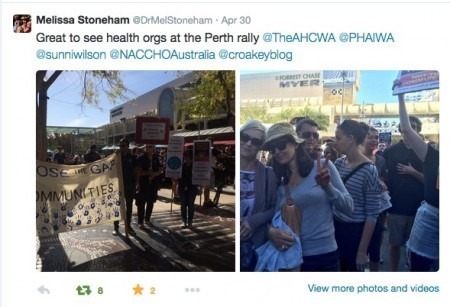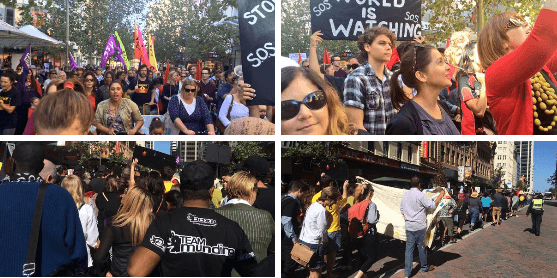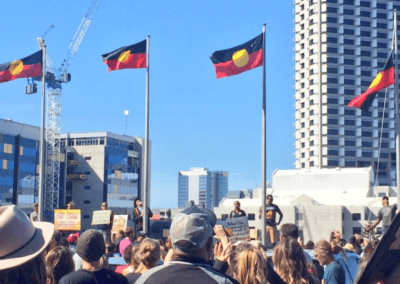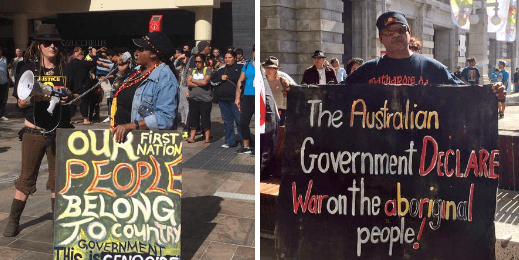Aboriginal Health
Aboriginal and Torres Strait Islander people have significantly poorer health and lower life expectancy than other Australians. Life expectancy for Aboriginal and Torres Strait people born in 2015-17 was estimated to be 8.6 years lower than that of the non-Aboriginal population for males (71.6 years compared with 80.2) and 7.8 years for females (75.6 compared with 83.4).
Between 2005–2007 and 2015–2017, the life expectancy of Aboriginal boys at birth increased by 4.4 years and by 2.7 years for girls. Over the same period, the gap between Aboriginal and non-Aboriginal life expectancy narrowed by 2.9 years for males and 1.9 years for females. (AIHW, 2019)
While there have been improvements in the health and well-being of Aboriginal and Torres Strait Islander Australians in recent years, some long-standing challenges remain. Many factors contribute to the gap between Aboriginal and non-Aboriginal health. Social disadvantage, such as lower education and employment rates, is a factor, as well as higher smoking rates, poor nutrition, physical inactivity and poor access to health services.
PHAIWA works with many Aboriginal organisations and services to promote health and wellbeing, reduce stigma, upskill Aboriginal practitioners and produce community based outcomes.
PHAIWA Projects
Advocacy Targets
PHAIWA has established the health of Australian Aboriginal peoples as a priority. PHAIWA’s advocacy targets for Aboriginal Health are:
- Linking housing and health
- Advocating for improved training, employment, mentoring, support literacy/numeracy for the Aboriginal workforce
- Supporting introduction of the Public Health Bill to bind the Crown
- Building on successful local models & disseminate information
- Provide leadership, coordination & accountability in Aboriginal enviornmental health
- Addressing lifestyle risk factors to reduce the impact of chronic disease
- Promoting maternal health for mothers and their children
PHAIWA coordinate a range of projects in the area of Aboriginal health including:
Aboriginal Health and the Mainstream News Media: A toolkit for journalists
Curtin University, in association with Combined Universities Centre for Rural Health, Health Communications Resources Inc. and Healthway, has produced a toolkit for journalists entitled ‘Aboriginal Health and the Mainstream News Media’. To view this document please click here.
Inquiry into food pricing and food security in remote Indigenous communities
PHAIWA developed a video case study of Tjuntjunjarra in preparation for the Inquiry into food pricing and food security in remote Indigenous communities. You can view this video here:
Important Resources
Uluru Statement from the Heart
Developed by delegates at the 2017 Aboriginal and Torres Strait Islander Referendum Convention,the Uluru Statement from the Heart calls for the establishment of a ‘First Nations Voice’ in the Australian Constitution and a ‘Makarrata Commission’ to supervise a process of ‘agreement-making’ and ‘truth-telling’ between governments and Aboriginal and Torres Strait Islander peoples. To read the statement click here.
Assimilation and the Push to Close Communities
Solidarity Online has published an excellent article about the forced closure of Aboriginal communities. You can read it here.
June Oscar’s Presentation at Kings College London, 2015
June Oscar, the well-known Aboriginal advocate and Chief Executive Officer of Marninwarntikura Fitzroy Women’s Resource Centre at Fitzroy Crossing, presented at Kings College London on the 29 April 2015.
In 2011, in an article appearing in The Age and Sydney Morning Herald, June was named as one of the 50 most influential women in the world for her work in improving the lives of those living in remote Aboriginal communities. Her presentation was titled ‘Encountering Truth: The Real Life Stories of Objects from Empire’s Frontier and Beyond’.
June Oscar’s Presentation at the National Suicide Prevention Conference, 2017
June Oscar’s latest presentation titled “Cultural Strength is Key to Suicide Prevention” which she delivered at the National Suicide Prevention Conference on 27 July 2017 can be read here.
Environmental Health Needs of Aboriginal Communities in WA
This report outlines the findings from a survey of discrete Aboriginal communities during late 2007 and through 2008, funded by the Environmental Health Coordinating Committee (EHNCC), the peak coordinating body in Aboriginal environmental health in WA. The survey was coordinated by the Environmental Health Needs Coordinating Committee and conducted by environmental health practitioners who work with, and in, discrete Aboriginal communities. Each of the participating communities was visited by environmental health practitioners in order to survey the infrastructure and collect information from community members. This information included levels of community satisfaction and concern with the provision of essential, municipal and allied services influencing and affecting environmental health.
The Report provides analysis on the 8 core environmental health indicators of:
Water, electricity, housing, solid waste disposal, sanitation, dust, dog health programs, emergency management.
To read the full report, click here.
To read press coverage of this report from The West Australian on May 15, please download from this link.
PHAIWA gets involved
The sun was shining. It was a beautiful Autumn day in Perth. A crew of five left PHAIWA on the train, headed for the SOSBLAKAUSTRALIA march to protest against the Barnett Government’s decision to close up to 150 remote Aboriginal communities. PHAIWA had been instrumental in drafting the Open Letter inviting health organisations to attend the rallies around Australia and the world, supported through Melissa Sweet at Croakey.
You can read the letter here.
We estimate that around 1500 people marched from Forrest Place to Parliament House. The largely calm but vocal crowd briefly stopped in the Perth Mall to hear a couple of speeches but then marched up St George’s Terrace to Parliament House.
When we arrived at Parliament house, Beds are Burning (Midnight Oil) was playing providing a great atmosphere for the speeches. Many passionate addresses were given with highlights for us being Tammy Solmenec from Amnesty Australia and Alannah MacTiernan MP, Member for Perth. A poignant moment was the raising of four Aboriginal flags at Parliament House as seen below.
It was a privilege for the PHAWA staff members to be at the rally, standing up for what we believe is a very important public health issue for both Aboriginal and non-Aboriginal people. For an overview of the tweets from rallies across the world, click here.

Updated: January 21, 2020




